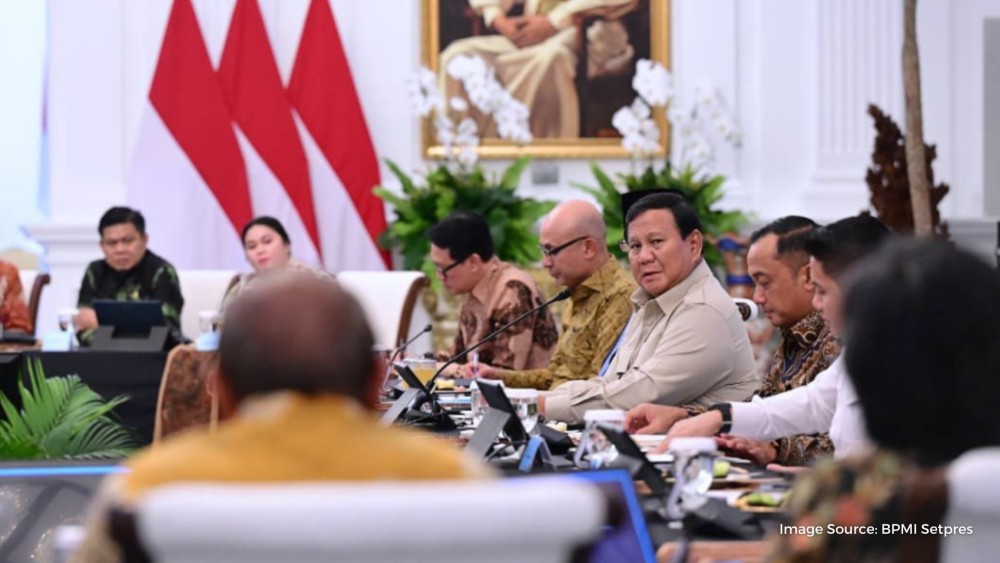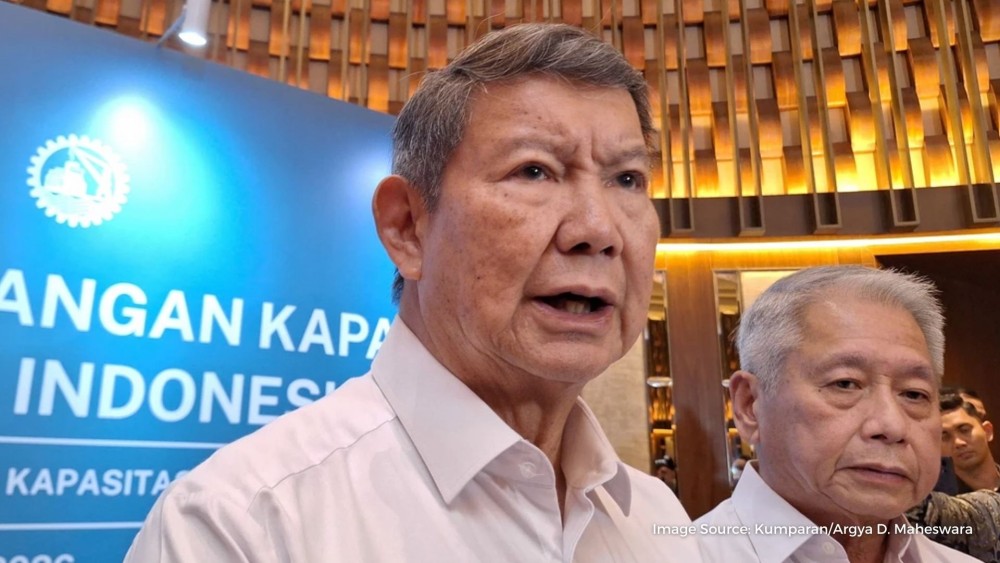This Week’s Headlines (Mar 2 – 8, 2024)
08 Mar 2024

Indonesia's presumed president Prabowo vows smooth transition, pushes privatisation
Indonesia's presumed president Prabowo Subianto on Tuesday promised a "very smooth" transfer of power later this year and opened the door to privatising state-run firms while maintaining government control of key economic sectors.
Speaking at an investment forum, Prabowo, who unofficial vote counts show won the Feb. 14 presidential election by a huge margin, also said he believed economic growth could reach 8% annually within the next four or five years.
Prabowo said that while the state could continue to regulate and maintain decision-making in strategic areas in Southeast Asia's biggest economy, the private sector should be allowed to thrive and take the leading role.
"Maybe we have to really have a programme of rationalising and privatising many of the state-owned enterprises. The state can regulate, the state can (provide) oversight, the state must also have strategic decision-making in the strategic sectors," he said.
"I don't see for instance why we need to be present in every sector of the economy ... now we must allow private sectors to be more and more dominant."
State companies in sectors such as banking, telecommunication, construction and mining currently play a dominant role in Indonesia's economy.
Prabowo, 72, pledged to continue the policies of incumbent Joko Widodo, who has overseen a big push to modernise infrastructure, and said he aimed to significantly improve tax ratios by widening the tax base, not necessarily by raising taxes.
He said his government could widen the fiscal gap to up to 2.8% of gross domestic product, from under 2% in 2023, and would still comply with the mandatory deficit ceiling of 3% of GDP.
Investors have been closely watching Prabowo's fiscal plans, after previous comments on potentially upping Indonesia's debt-to-GDP ratio raised alarms. Rating agencies warn his signature promise of free school lunches could be costly.
Prabowo pledged to maintain Indonesia's track record of fiscal prudence, but repeated that he thought there was space to increase public spending and debt, with their ratios relative to GDP being lower than other countries.
Prabowo also said Indonesia would strive for food self-sufficiency, which he was optimistic could be achieved quickly, leading to the nation exporting food within four years.
He said Indonesia was open for investment and that his government would ensure protection for foreign and domestic investors.
DEMOCRACY 'VERY, VERY TIRING'
In a wide-ranging speech that lasted nearly an hour, Prabowo said Indonesia should be proud of last month's election, though he said he was not satisfied with his country's democracy, without elaborating.
"Let me attest, testify that democracy is really very, very tiring. Democracy is very, very messy, democracy is very, very costly," he said. "There is a lot of room for improvement."
Prabowo, who is currently defence minister, looks to have easily won his third attempt at the presidency, buoyed by the tacit and controversial support of the hugely popular Jokowi, as the president is known, and the inclusion of the incumbent's son on his ticket as running mate.
Jokowi, who has been in power a decade, has been widely criticised for unfairly favouring Prabowo as a means of preserving his legacy, and exerting influence over institutions to influence the election outcome, which his allies reject.
The official election result is expected by March 20 and, if confirmed winner, Prabowo will take office in October.
Source: Reuters
RI to claw back right to tax imported digital goods in 2026
The end of the WTO moratorium on e-commerce tariffs in 2026 paves the way for Indonesia to start levying excises on imported digital goods.
Indonesia has claimed that the World Trade Organization moratorium on e-commerce tariffs will not be extended beyond the agreed deal, hoping that this will finally end years of tax breaks enjoyed by foreign tech companies, which firms have warned would also hurt consumer in the process.
The moratorium was set to expire on March 31 if WTO members do not unanimously agree on its renewal, but Indonesia, like all other members of the organization, opted to extend it until the 14th Session of the Ministerial Conference (MC14) or March 2026, whichever is earlier, during a conference held on March 1.
Experts say the decision is a compromise, as it moves the country closer to an end to many years of duty-free e-commerce but accommodates calls from several countries behind foreign big tech companies that want it to remain in place or even to become a permanent policy.
“There’s no [moratorium] beyond that. So, there’ll be no talk of further extensions,” Djatmiko Bris Witjaksono, Indonesian delegation for the WTO’s 13th ministerial conference (MC13), said in a press briefing on Tuesday.
The moratorium bars countries from levying import duties on digital products and was first launched in 1998.
Jakarta has become one of the prominent WTO members seeking to supplant the so-called customs duties on electronic transmissions (CDET) moratorium since 2017.
It argued that the moratorium tends to benefit only developed countries, while developing countries lose billions of dollars of potential revenue.
The government also believes that the duties would help local software developers and content providers compete with global giants.
So far, Indonesia is the only country with a regulation in place to allow for the imposition of duties on digital goods. The country does not currently have any tariff on such goods in order to comply with the consensus.
The regulation recognizes electronically transmitted goods like software, music, books or video games as those could be subjected to the import duty.
Even though Jakarta could easily disagree so that no consensus is reached, Djatmiko said that Indonesia “was delivering its voice in a constructive manner”, implying that a non-consensus outcome is counterproductive.
“We agreed that many countries need room to prepare for the termination of this moratorium. Indonesia and some other countries may be ready, but we must pay attention to other countries’ preparedness,” Djatmiko explained.
Prior to the meeting, the International Chamber of Commerce (ICC) and the Asia Internet Coalition (AIC) warned that ending the moratorium could risk each country’s digital and overall economy.
The AIC told The Jakarta Post on Jan. 30 that if the moratorium ends, these extra costs will likely be passed on to consumers, including local, small and emerging enterprise businesses, adding that it could negatively impact business productivity, innovation, national competitiveness and job creation.
Meanwhile, the ICC told the Post on Jan. 19 that Jakarta’s motivation might be a financial one, as the moratorium made the government lose out on potential revenue, but it asserted that there was no evidence that the additional revenue collected would be of sufficient value to make any difference.
Lydia Ruddy, managing director of the American Chamber of Commerce in Indonesia, told the Post on Tuesday that imposing duties on digital goods “doesn’t sound like a good idea” and the imposition of tariffs “would be bad for business across the board”.
“I think there is a level playing field [without the taxes]. It's fair competition across the board. So, imposing taxes, that's creating an unlevel playing field,” said Ruddy, implying it could contradict what the government is trying to achieve.
Center of Reform on Economics (CORE) executive director Mohammad Faisal told the Post on Tuesday that Indonesia’s move to uproot the CDET moratorium was good for developing the domestic digital industry if the government had a clear road map.
Apart from bringing in extra state revenue, if done well, it could stimulate the domestic industry to stand on its own feet by ensuring a level playing field against its foreign counterparts.
However, Faisal cautioned that applying levies to digital products could be a double-edged sword depending on the specific products receiving the levy, stressing why the country needs a clear road map for domestic digital industry development.
For instance, digital books were one of the goods that Faisal said should not receive any duty, as the transfer of knowledge is nothing but helpful.
Faisal also suggested that the government refrain from imposing duties on advanced digital products as the country does not yet have the capacity to build on its own, citing risks of hindering business activity.
Source: The Jakarta Post
Nickel Industries pledges to support environmental sustainability
Nickel Industries is committed to supporting the sustainability of the environments and communities in which it operates, according to the sustainability manager of the company, Muchtazar.
“In terms of climate and clean energy transition, we are proudly taking a leadership role in reducing our carbon footprint and supporting the sustainability of the environments and communities in which we operate,” he said in a statement received in Jakarta on Wednesday.
Nickel Industries has committed to a 50-percent reduction in carbon intensity by 2035 and net-zero emissions by 2050, goals that were first announced at the 2023 United Nations Climate Change Conference (COP28) in Dubai last year, he said.
During the 2024 ASEAN-Australia Special Summit, he informed that Nickel Industries is continuing to forge strong partnerships across borders to foster growth and development.
He said that Nickel Industries is an Australian public company, which owns a portfolio of mining and low-cost downstream nickel processing assets in Indonesia, a member of the Association of Southeast Asian Nations (ASEAN).
The company has a long history in Indonesia, with controlling interests in the world-class Hengjaya Mine as well as four rotary kiln electric furnace (RKEF) projects that produce nickel matte for the electric vehicle (EV) supply chain and nickel pig iron (NPI) for the stainless-steel industry.
Having established itself as a globally significant producer of NPI, the company is now rapidly transitioning its production to focus on the EV battery supply chain.
Recently, he said, the company has converted some of its existing production from NPI to nickel matte and also acquired a 10-percent interest in the Huayou Nickel Cobalt (HNC) HPAL project, adding mixed hydroxide precipitate (MHP) to its product portfolio.
Nickel Industries is now embarking on its next transformative step, announcing a positive final investment decision to invest in Excelsior Nickel Cobalt (ENC), a next-generation HPAL project capable of producing MHP, nickel sulfate, and nickel cathode, he disclosed.
ENC will produce approximately 72 thousand tons of nickel metal per annum, diversifying its production and reducing its carbon emissions profile – reflecting the company’s strong commitment to sustainable operations.
He said that Nickel Industries’ operations demonstrate how Australia and ASEAN can cooperate to achieve mutual benefits in the areas of trade, investment, and sustainable development.
Nickel Industries stands as a testament to the strength of Australia-ASEAN cooperation, embodying the principles of partnership, innovation, and sustainable development, he added.
Through its strategic vision and commitment to shared values, the company is paving the way for a brighter future of collaboration and prosperity in the Asia-Pacific region and beyond.
Nickel Industries’ operation reflects the common vision and interests of Australia and ASEAN, as well as its commitment to regional stability, prosperity, and sustainability.The company’s achievements could also inspire more opportunities for collaboration and innovation between Australia and ASEAN in the future, he said.
Source: Antara News











